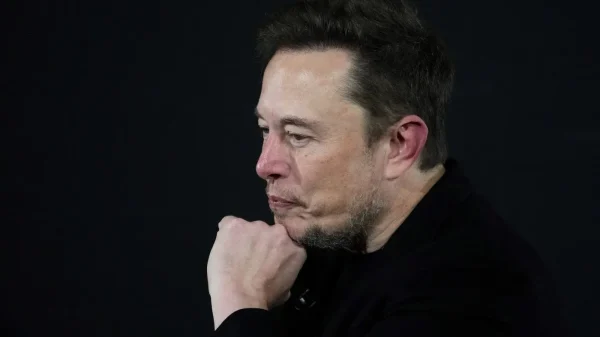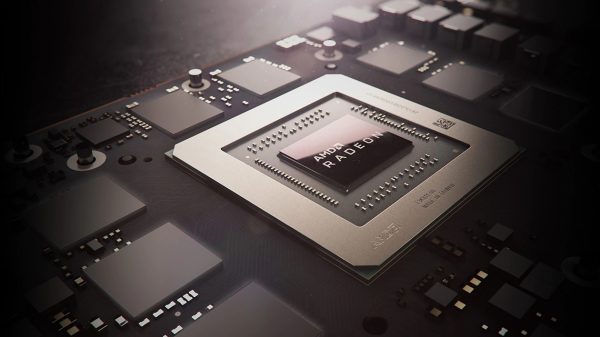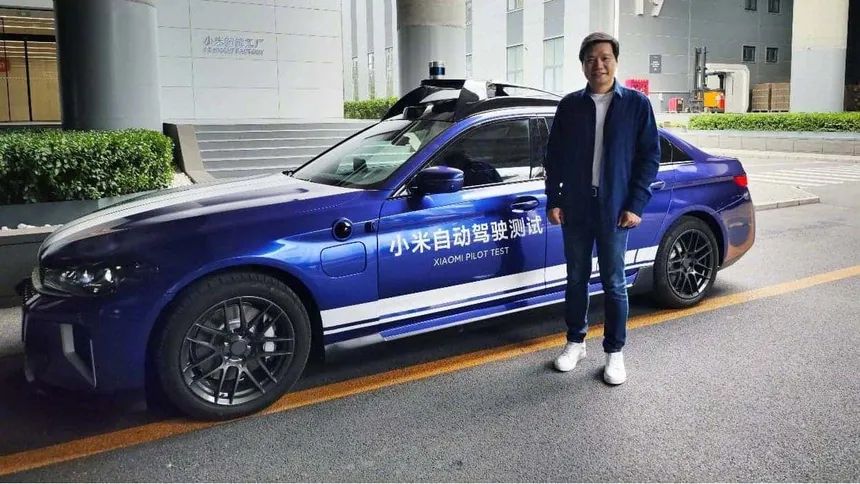Xiaomi, a Chinese tech giant, has made a significant foray into the automotive sector by launching its first-ever electric vehicle, the Speed Ultra 7 (SU7), aiming to become one of the world’s top five automakers within the next 15 to 20 years. This move is a bold challenge to Tesla, which has dominated the electric vehicle market in China for years. Xiaomi’s entry into the auto sector marks a major shift in the company’s strategy, as it seeks to expand its influence beyond the technology industry.
The SU7, which was revealed last year, boasts impressive features, including advanced driver-assist technologies, a digital cockpit, and a range of up to 497 miles. This is comparable to some of the best-selling electric vehicles in the market, including some Tesla models and Porsche variants. Xiaomi claims the SU7 can accelerate faster than some of these cars, further highlighting its competitive edge.
The pricing of the SU7 has not been officially announced, but local media reports suggest it could cost anywhere between 250,000 yuan and 370,000 yuan. This puts it in the same price range as Tesla’s locally produced Model 3, which is priced between 245,900 yuan and 285,900 yuan. Xiaomi’s focus on quality and performance is a deliberate attempt to differentiate itself from competitors and appeal to customers who are willing to pay a premium for a high-end electric vehicle.
Xiaomi’s move into the auto sector is seen as a bold attempt to challenge Tesla’s dominance in the Chinese market. Tesla has been facing increased competition from Chinese automakers such as BYD, which has been making significant gains in the electric vehicle market with its affordable offerings. BYD has also started to see success in overseas markets, further increasing the pressure on Tesla.

Xiaomi’s Ambitious Entry into the Global Electric Vehicle Market
In response to this competition, Tesla has been cutting the cost of its cars in China to maintain its market share. Xiaomi, however, is taking a different approach by focusing on quality and performance. The company plans to invest $10 billion in its vehicle business over the next 10 years and may expand sales of the SU7 to global markets within the next couple of years.
Xiaomi’s long-term goal is to become one of the world’s top five automakers. To achieve this target, the company will need to invest heavily in research and development, manufacturing, and marketing. It will also need to establish a strong dealership network and maintain high-quality customer service. Xiaomi’s ability to achieve this goal will depend on its ability to execute its plans effectively, manage risks, and adapt to changing market conditions.
Xiaomi’s entry into the auto sector is a significant development that is likely to shake up the electric vehicle market. With its impressive features, competitive pricing, and strong brand reputation, the SU7 has the potential to attract a large customer base and give Tesla a run for its money. As Xiaomi continues to invest in its vehicle business and expand its sales globally, it could become a major player in the auto sector and a formidable competitor to Tesla. The company’s success will depend on its ability to balance its technology and automotive businesses, manage its resources effectively, and connect with customers in the auto sector.









































